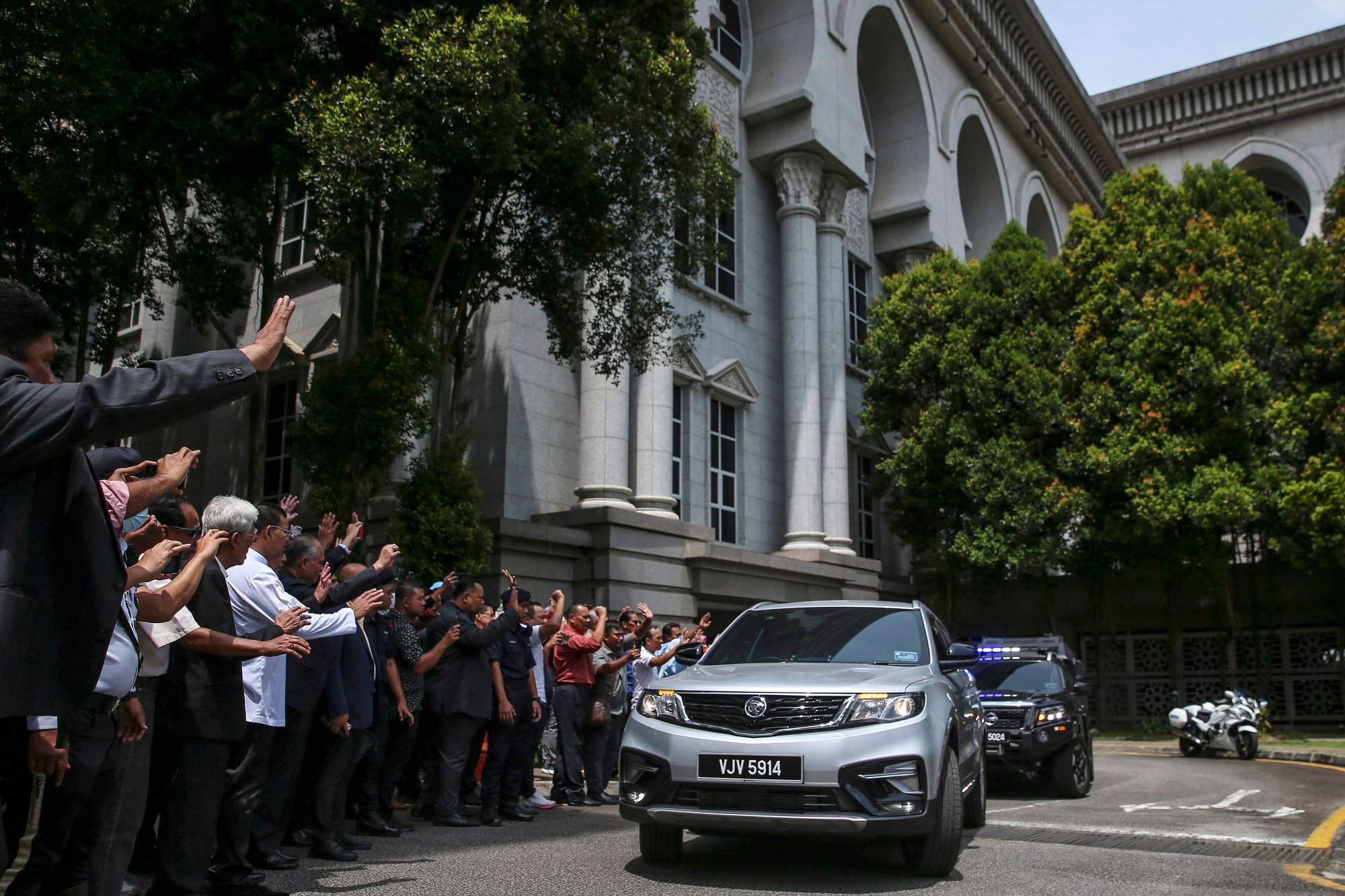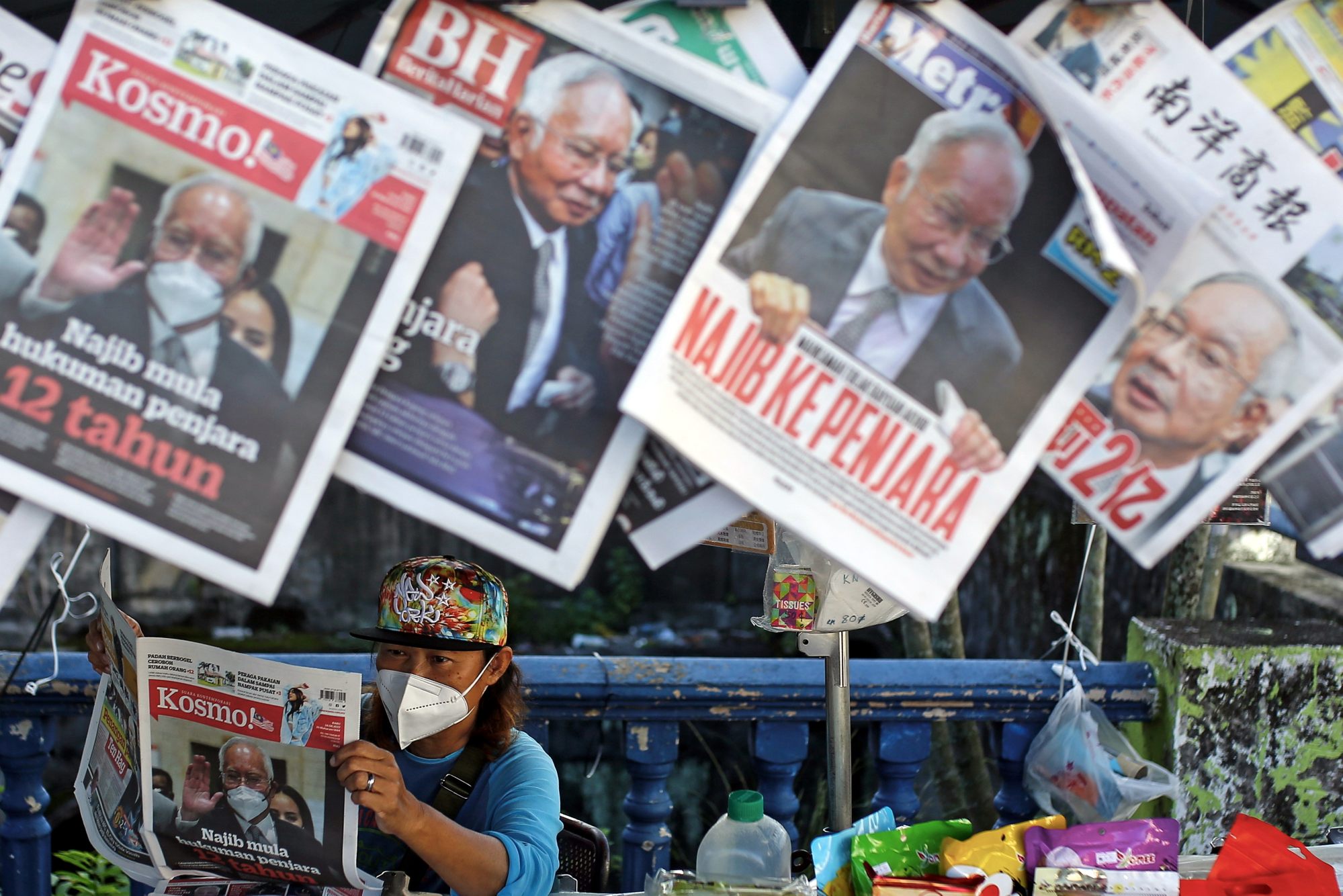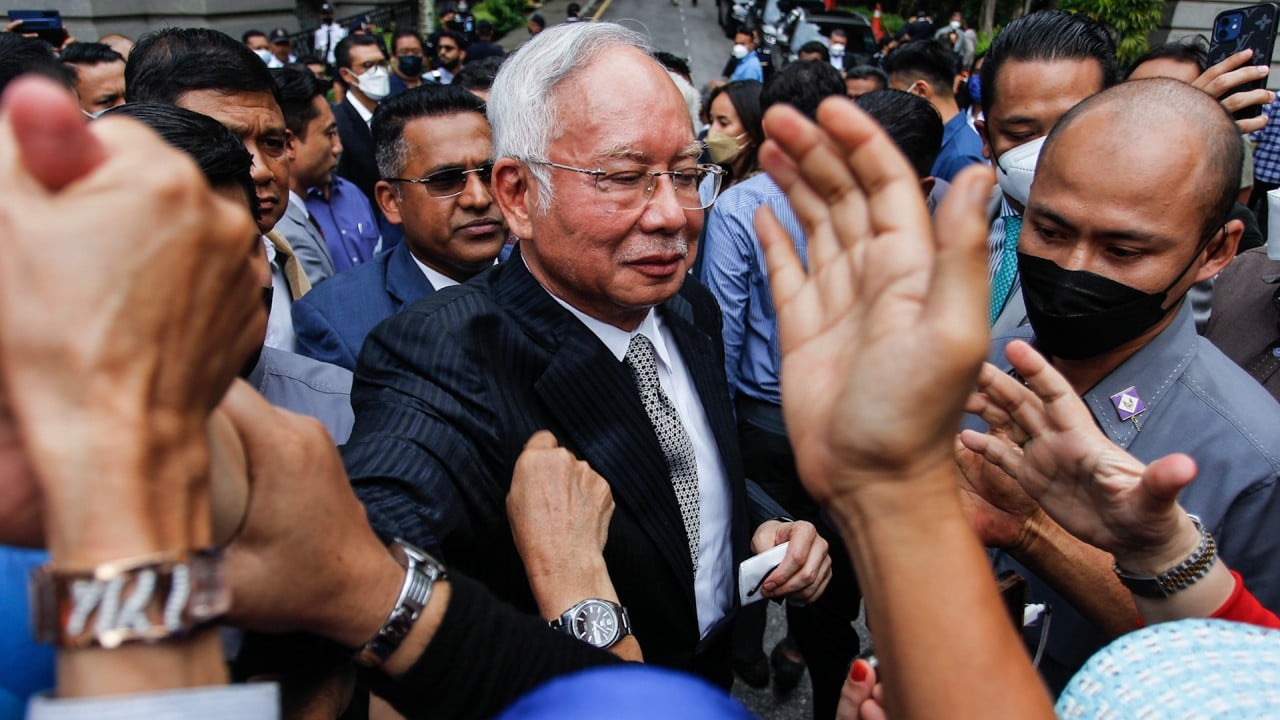
Explainer | Malaysia’s jailed ex-leader Najib Razak is seeking a royal pardon. What happens next?
- Request for pardon to be deliberated by the Pardons Board which includes the king and PM Anwar Ibrahim, who has brushed aside concerns of conflict of interest
- No date has been set to hear Najib’s request, which has triggered a strong public reaction and petitions urging the king to either reject or allow the pardon
Malaysia’s corrupt ex-PM Najib Razak asks for royal pardon to get out of jail
But his lawyers say that the sole dissenting opinion from the apex court bench provides strong grounds for the former prime minister to seek a pardon from the king – the only way he can get out of jail without completing his term.
Chief Judge of Sabah and Sarawak Abdul Rahman Sebli in his dissenting view said Najib was not given effective legal representation during his last appeal before the federal court last August.
The federal court had ruled then that the hearing must continue following an application by the former leader’s defence counsel to discharge himself on grounds that he was not ready to defend his client.
Najib’s application for a royal pardon will hinge on the dissenting opinion and state that he did not receive a fair trial as his grounds for appeal were not heard by the federal court, his lawyers have said.
So how does that work?
Royal discretion
Under Malaysia’s federal constitution, the nine members of the Conference of Rulers and the governors in states that do not have royal families have the power to grant “pardons, reprieves and respites” for anyone convicted of a crime in their respective jurisdictions.
As Najib’s final appeal was heard in the administrative capital of Putrajaya, which is a federal territory, his plea for a pardon will go before the constitutional monarch – a unique post held by each of the nine rulers in five-year turns.
Once an application for a pardon is submitted, it will then be deliberated by a Pardons Board chaired by the king and include the attorney general, the minister in charge of the federal territories and no more than three others appointed by the king.
The federal constitution does not provide for a time frame for when a pardon application should be heard or when a decision should be made.
But it is clear that the final decision to grant a pardon rests with the king.

Conflict of interest?
A subclause in the federal constitution states that the king “shall not be accompanied by the Prime Minister” when attending proceedings involving the Pardons Board.
But when Anwar formed his cabinet, he decided to do away with the federal territories ministry and instead parked it under the prime minister’s department – technically making him the minister in charge of the federal territories.
The prime minister also brushed aside concerns of a potential conflict of interest, as Najib’s Umno party – which is a key part of Anwar’s unity government – had submitted an application to the king seeking his consideration for the pardon.
“Even though it goes through a process and I am in that process, in the end, the question of awarding medals and pardons is the authority and discretion of the Yang di-Pertuan Agong and does not need to be discussed publicly,” Anwar was quoted as saying by local media, referring to the king’s official title.

Split opinions
Najib’s application for a pardon triggered a strong public reaction, with groups on both ends of the spectrum launching separate petitions to submit to the king.
A petition urging the king to reject Najib’s pardon, launched by election watchdog Bersih, garnered the largest pool of support, surpassing 150,000 signatures.
“As a nation, we cannot tolerate corruption whoever is the culprit. Let Najib finish his 12-year jail sentence and pay his 210 million ringgit fine as a warning to all leaders who think they can be corrupt and abuse power,” read the petition addressed to the king.
Over 21,000 signatures were collected by a separate petition also addressed to the king, created by Najib’s supporters and asking for him to be pardoned to right what they described as injustices committed against the leader.

What happens next?
While no date has been set to hear Najib’s request for a royal pardon, the public and observers have already begun parsing comments by top ministers for indications of the government’s position on the matter.
On Monday night, Anwar said he would not compromise on his pledge to bring people who “plundered the nation’s wealth” to justice.
“That is my pledge, for better or worse, I will face it. If you want to bring me down because I fight corruption, do so by all means. But I am never going to compromise when it comes to cleaning up the country and saving the people from those who rob the nation,” he was quoted as saying by the state news agency Bernama.
Anthony Loke, the transport minister and leader of the powerful Democratic Action Party that is part of Anwar’s government, said the question of a pardon for Najib was an internal Umno matter.
“The issue of pardon is not a government stand but that of Umno as a political party,” Loke was quoted as saying by The Star newspaper on Monday. “Whether granted or not, [it] is up to the Yang di-Pertuan Agong … We put our trust in the process and the king’s wisdom to make the best decision.”


